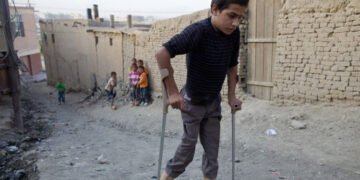BY : Hasan Khambatwala.
Karachi : Infectious disease outbreaks and rising healthcare costs make headlines, there is a silent public health emergency brewing beneath the surface – one that demands urgent attention from both our government and citizens.
Pakistan’s public health system is under immense strain, particularly due to inadequate sanitation and clean water access. Over 53% of Pakistan’s urban population lives in informal settlements where access to clean drinking water and proper waste disposal is severely limited. As a result, millions are vulnerable to waterborne diseases like hepatitis, typhoid, and cholera, illnesses that not only compromise individual well-being but also put a massive burden on an already struggling healthcare system. Meanwhile, basic facilities in government hospitals are often overwhelmed, understaffed, and underfunded, leaving the poorest citizens without essential care.
The recent rise in cases of non-communicable diseases (NCDs) like diabetes, cardiovascular diseases, and respiratory illnesses has further complicated this public health emergency. These conditions require long-term management, yet Pakistan’s healthcare system is primarily geared towards emergency response rather than preventive care. This limited approach not only costs more in the long term but also fails to address the root causes of our health crisis.
The lack of public awareness compounds the problem. Preventive healthcare remains a neglected area in our society, often considered unimportant compared to treating visible symptoms. However, by not prioritizing education on sanitation, nutrition, and preventive measures, we allow minor health issues to escalate into crises. Moreover, this unawareness feeds into a vicious cycle of preventable illness, low productivity, and economic strain, hitting the poorest communities the hardest.
To address this hidden health crisis, we must adopt a holistic approach. The government needs to invest in improving sanitation and clean water access, particularly in informal settlements. Additionally, public health policies should emphasize preventive care, health education, and affordable healthcare access, particularly in rural areas where healthcare services are scarce.















